The city is a structured place. Roads and sidewalks follow mainly straight lines, while houses, apartment buildings, offices and shops march dutifully alongside them, one after the other. Many of us live structured lives within our concrete, highly controlled world, following the schedules, routines, and norms of our workplaces and leisure activities. Urban green space is often no different -- processions of trees stand on manicured turf and garden beds are filled with neat lines of annuals. Community use of park space is defined and limited by a stifling array of municipal policies, bylaws, permits and red tape.
University of Windsor community garden empowers people, feeds community
Some of Windsor's most vulnerable citizens are benefiting from a community garden that's been churning out fresh, local organic produce for the last several years.
But the mission of the University of Windsor's Campus Community Garden Project goes far beyond one branch of altruism.
"Feeding the community is very important, but even more important is empowering people and teaching them how to grow their own food," said Rita Haase, the project's founder and a sessional instructor in the university's Women's Studies department and Faculty of Education. "That's what we do here."
Comments
Do
- Tell the truth and avoid rumours.
- Add context and background.
- Report typos and logical fallacies.
- Be respectful.
- Respect copyright - link to articles.
- Stay focused. Bring in-depth commentary to our discussion forum, babble.
Don't
- Use oppressive/offensive language.
- Libel or defame.
- Bully or troll.
- Post spam.
- Engage trolls. Flag suspect activity instead.
Start your own Window Farm
With limited spaces for gardening in cities, many urban apartment dwellers have sought alternative ways to grow their own food. Enter the ever innovative, window farm! With a large enough window and some DIY spirit, growing everything from herbs to tomatos to strawberries is possible.
All you need to get started are some plastic pop bottles, hardware store tubing, clay pellets and some cheap pumps typically used in aquariums. To get started, everything will run you around $30. Oh, and you'll need some guides along the way!
Video: Occupy Gardens at Queen's Park
On May 1, 2012, the first seeds were planted at Queen's Park (directly below Ontario's provincial legislature building) by a movement partly drawn from the wider Occupy movement called Occupy Gardens. The community took over a plot of land designated as a space for communal gardening and stewardship.
I recently visited this Occupy Garden a.k.a. The People's Peas Garden at Queen's Park in Toronto.
Comments
Do
- Tell the truth and avoid rumours.
- Add context and background.
- Report typos and logical fallacies.
- Be respectful.
- Respect copyright - link to articles.
- Stay focused. Bring in-depth commentary to our discussion forum, babble.
Don't
- Use oppressive/offensive language.
- Libel or defame.
- Bully or troll.
- Post spam.
- Engage trolls. Flag suspect activity instead.
A tour of Sky Garden at the University of Toronto
Here we get a tour of Sky Garden at the University of Toronto (St. George St.). Matt and Heather show us around their garden; it's agricultural system, fertilizer system, and various crops, including tomato, melon, pepper, raspberry, pumpkin, squash, etc. The organization acts as a student/volunteer run urban agricultural project in their community. For more information check out www.foodandwaterinstitute.org
Comments
Do
- Tell the truth and avoid rumours.
- Add context and background.
- Report typos and logical fallacies.
- Be respectful.
- Respect copyright - link to articles.
- Stay focused. Bring in-depth commentary to our discussion forum, babble.
Don't
- Use oppressive/offensive language.
- Libel or defame.
- Bully or troll.
- Post spam.
- Engage trolls. Flag suspect activity instead.
Locavore
Locavores are folks who only eat food that is locally produced and sold. It's an act of resistance to the commercialization of food production and a commitment to support local economies and farmers.
The idea of eating local was popularized by the ecologist Gary Paul Nabham in the early 2000s. Organized awareness campaigns in Canada and the United States brought the idea of the "100 mile diet" (only eating food produced within 100 miles) to kitchen tables worldwide.
What's local


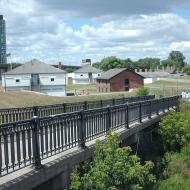
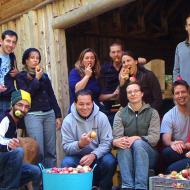
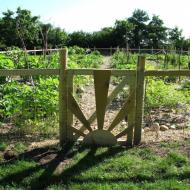
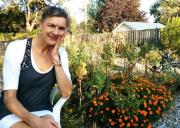


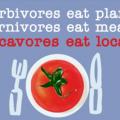
Comments
Do
Don't